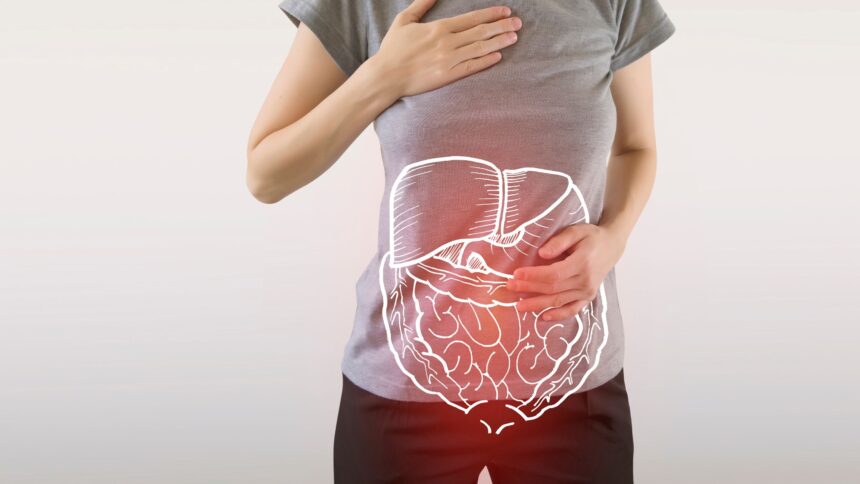The liver plays a vital role in the body’s processes of breaking down nutrients, filtering out toxins, and producing important proteins and enzymes. However, excessive alcohol use, certain medications, or underlying medical conditions can put stress on this hard-working organ over time. While the damage may not always cause immediate symptoms, it’s important to recognize potential warning signs that the liver could be impaired in its normal functions. Identifying issues early allows for interventions to protect long-term health. So what are some key signs to watch out for?
What are the 4 Warning Signs of a Damaged Liver?
The 4 main warning signs of potential liver damage are:
- Fatigue and weakness
- Loss of appetite or nausea
- Abdominal pain or discomfort
- Jaundice (yellowing of the skin and eyes)
Fatigue and Weakness
One of the primary signs of potential liver problems is feeling increased tiredness and low energy levels. The liver helps produce energy and regulates red blood cells, so damage can impact its ability to perform these tasks optimally. As toxins accumulate instead of being removed from the bloodstream, it puts extra strain on the whole body. Individuals may notice greater difficulty maintaining stamina throughout the day or feeling worn down more quickly than usual. Over time, even simple activities may cause exhaustion versus the energy levels felt previously. This warning sign deserves attention from medical professionals.
Loss of Appetite and Digestive Changes
When the liver is impaired, metabolism and breakdown of nutrients can alter, sometimes triggering nausea or loss of interest in eating. These digestive issues may arise from toxin buildup in the blood or failure to circulate important proteins supporting metabolism. Weight loss might occur unintentionally if appetite declines severely over weeks. Additionally, individuals could experience vague stomach discomfort, queasiness, or indigestion unrelated to meals. While occasional nausea occurs normally, consistent changes require evaluation by doctors for liver and other potential causes. Addressing underlying issues helps resolve digestive disturbances.
Abdominal Pain or Tenderness
Pressure or discomfort may develop in the upper right part of the abdomen beneath the ribs if toxins accumulate around the liver or other nearby structures. Symptoms range from occasional minor twinges to a more persistent dull ache depending on severity. Pain may arise with certain movements or pressing on the area. Though muscle strains could imitate this, worsening abdominal tenderness over time associated with other signs above raises concern for liver impairment and deserves medical attention.
Jaundice
Advanced liver damage causes the dangerous condition known as jaundice, marked by a yellowish tint to the skin and eyes. This happens when bile pigments normally flushed out by the liver build up abnormally high in body tissues instead. Individuals notice discoloration spreading gradually from the whites of the eyes outward. Jaundice represents severe liver function impairment requiring prompt emergency care to avert serious complications. Noticing changes in skin appearance from its usual tone lets doctors intervene quickly.
What are some lifestyle adjustments that can help protect the liver?
Here are some key lifestyle adjustments that can help protect the liver:
Moderating Alcohol Intake

Excessive alcohol use greatly stresses the liver and is a leading cause of impairment over time. While occasional light drinking may be okay for some, it’s best to keep average daily intake moderate or low. For those with existing liver damage, complete abstinence provides the liver with optimum conditions for recovery.
Maintaining a Healthy Weight
Carrying excess weight requires the liver to work harder to process extra toxins, nutrients, and hormones. Even modest weight loss through balanced nutrition and exercise eases the burden. Shedding pounds if overweight improves overall metabolic function supporting liver health.
Managing Stress Levels
Chronic stress places continuous strain on the entire body, including the liver. Finding relaxed activities, sufficient rest, and social connections protects against wear and tear. Mindful practices like meditation or yoga aid stress response and immunity.
Limiting Toxins
Harsh chemicals, pollutants, and microbes that are hard on the liver include certain prescription or recreational drugs, industrial pollutants, and untreated water. Doing what one reasonably can to minimize exposure helps ensure the liver faces less assault over the years.
Incorporating Nutrient-Rich Foods
A diet focused on whole, minimally processed plant foods supplies the liver with antioxidants and other compounds that facilitate its cleansing functions. Emphasis on vegetables, fruits, whole grains, nuts and seeds, and healthy fats supports both short- and long-term liver welfare.
By focusing on these achievable adjustments, individuals empower themselves by actively maintaining this tireless organ’s capacity to protect health each and every day.
Are there any specific nutrients or compounds that are particularly beneficial for liver health?
Yes, there are some nutrients and compounds that research shows can especially support and protect liver health. Here are a few key ones to focus on:

Turmeric/Curcumin
This spice contains curcumin, a polyphenol compound with powerful anti-inflammatory and antioxidant properties. Studies link curcumin to reduced liver damage from toxins like alcohol. It may help regenerate liver cells and has shown promise for conditions like fatty liver disease.
Omega-3 Fatty Acids
Found in fatty fish and fish oils, omega-3s improve liver metabolism and help moderate fat deposition. They also curb inflammation involved in many liver issues. Aim for one to two servings of fatty fish per week or consider an omega-3 supplement as advised by a doctor.
Vitamins C and E
These vitamins battle cell-damaging free radicals at a fundamental level. The liver needs plentiful antioxidants to counter the effects of breaking down toxins. Colorful fruits and vegetables supply both. Supplements under medical guidance may benefit those with existing liver conditions.
N-Acetyl Cysteine (NAC)
This amino acid replenishes glutathione, an antioxidant crucial for liver function. NAC supports detox processes and shows promise against conditions like fatty liver. A medical practitioner can advise on appropriate supplemental doses.
Emphasizing an overall diet rich in such naturally protective compounds, alongside lifestyle modifications, helps maintain the liver’s well-being against modern health hazards and stresses of daily living. A healthy liver means better functioning for the entire body and mind.
How can individuals support their liver’s regeneration abilities?
There are several key ways individuals can help support their liver’s innate regenerative capabilities:
Nourishment is Priority One: As with any healing process, the liver requires proper fuel. A nutrient-dense whole foods diet rich in fruits/veggies, healthy fats, proteins and liver-supportive vitamins/minerals deliver materials the organ needs to repair and replenish. Avoiding empty calories empowers regeneration.
Water is Life: Staying adequately hydrated helps flush out built-up toxins so the liver’s filters can work smoothly. It’s the type of simple yet impactful lifestyle tweak with real benefit.
Keep Stress Low: High stress generates excess wear and tear on the body. Taking time each day for relaxing activities enables the regenerative systems, including in the liver, to do their jobs effectively without distraction.
Good Restorative Sleep: When we slumber, our bodies are hard at work with repair and recovery. Ensuring sufficient quality sleep by sticking to a regular schedule creates the ideal internal environment for liver regeneration overnight.
Exercise Wisely: Moderate movement increases blood circulation and pumps oxygen to tissues, including the liver. Short daily sessions of walking, yoga, or strength training are generally supportive, but check with a medical care provider first regarding activity levels depending on liver condition.
With compassion for this overworked yet devoted organ’s resilience, small consistent changes pave the smoothest path for liver regeneration through lifestyle accommodation and care of the whole self.
Conclusion
While the liver exhibits amazing regeneration abilities, ongoing damage over years leads to permanent scarring or cirrhosis carrying life-threatening risks if left unmanaged. Therefore, paying attention to bodies for potential warning signs allows the best opportunity for reversibility through lifestyle adjustments and medical care earlier on under guidance. With support, people can take proactive steps to aid this hard-working organ in continuing its role optimally for long-term health. Recognizing clues serves as a lifeline towards protective interventions keeping individuals feeling their best.




